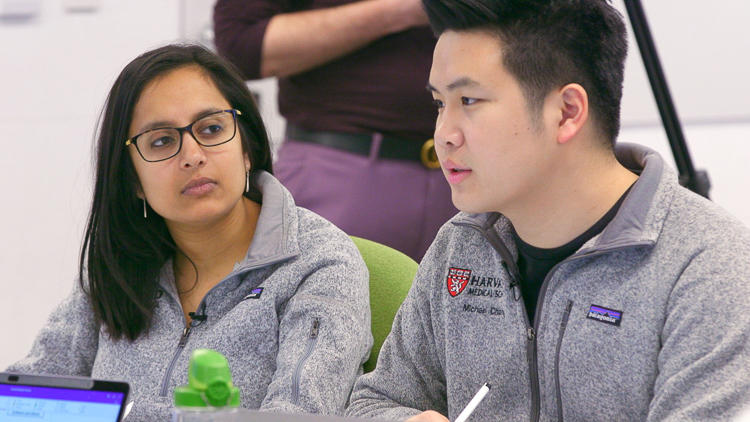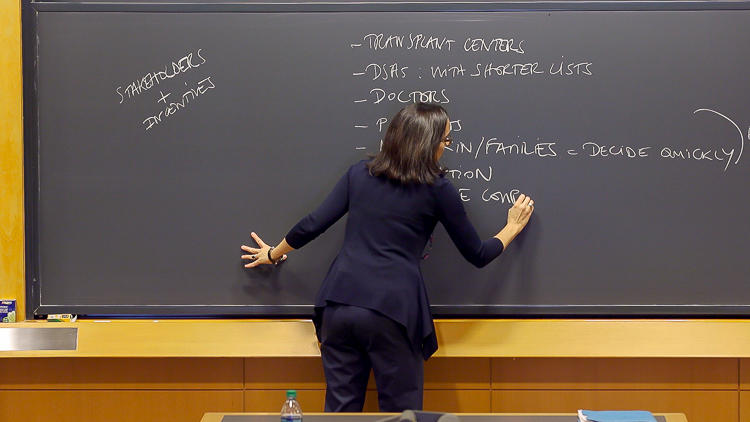A central tension many instructors face is how to keep a lesson moving forward while also encouraging students’ inquisitiveness and answering their questions. As Barbara Cockrill describes in this video, curiosity is something teachers should be careful not to “thwart.” However, some insights or questions raised by students can quickly pull a carefully timed class off-track. In this video, Cockrill describes how she honors students’ curiosity while also managing potential tangents that students raise. In particular, she discusses how to manage the especially inquisitive student and support students who are struggling with course material.
Moving class forward while honoring curiosity spurred by the case
Instructor
Barbara Cockrill, Harold Amos Academy Associate Professor of Medicine
Student Group
Graduate
School
Harvard Medical School
Course
Homeostasis I
Group Size
40 students
Additional Details
First-year requisite
- CBCL will likely spur student questions and insights that extend beyond the scope of the case at hand. Consider factoring in additional time when lesson planning so you don’t have to suppress students’ curiosity when these questions arise.
- Make judgment calls in the moment concerning whether or not a student contribution warrants further exploration. If it does, set aside some time to entertain it as a group; if not, acknowledge the students’ contribution, vocalize and/or consider how you might incorporate it into future lessons and cases, and move the class along.
- Find ways to creatively manage students who ask lots of questions. You might consider meeting with these students outside of class time if their inquiries suggest more fundamental misunderstandings that warrant addressing.
- Studies in expertise suggest instructors prioritize depth over breadth as this approach supports deeper learning (Morphew et al., 2015; National Research Council, 2000). This suggests that instructors may consider the amount of content they include in their class and include some flexibility for relevant student questions.
- A sense of autonomy over course content is an important component in student motivation (Deci & Ryan, 2000). This suggests it is critical to honor student voices and curiosity when possible.
- Harvard Medical School provides a rubric to self-assess your own CBCL facilitation, or collaborate with colleagues to conduct peer observations and evaluations.
- Learn how Instructional Moves featured faculty member Brett Flehinger makes decisions about when to follow a tangential question and when to keep moving.




